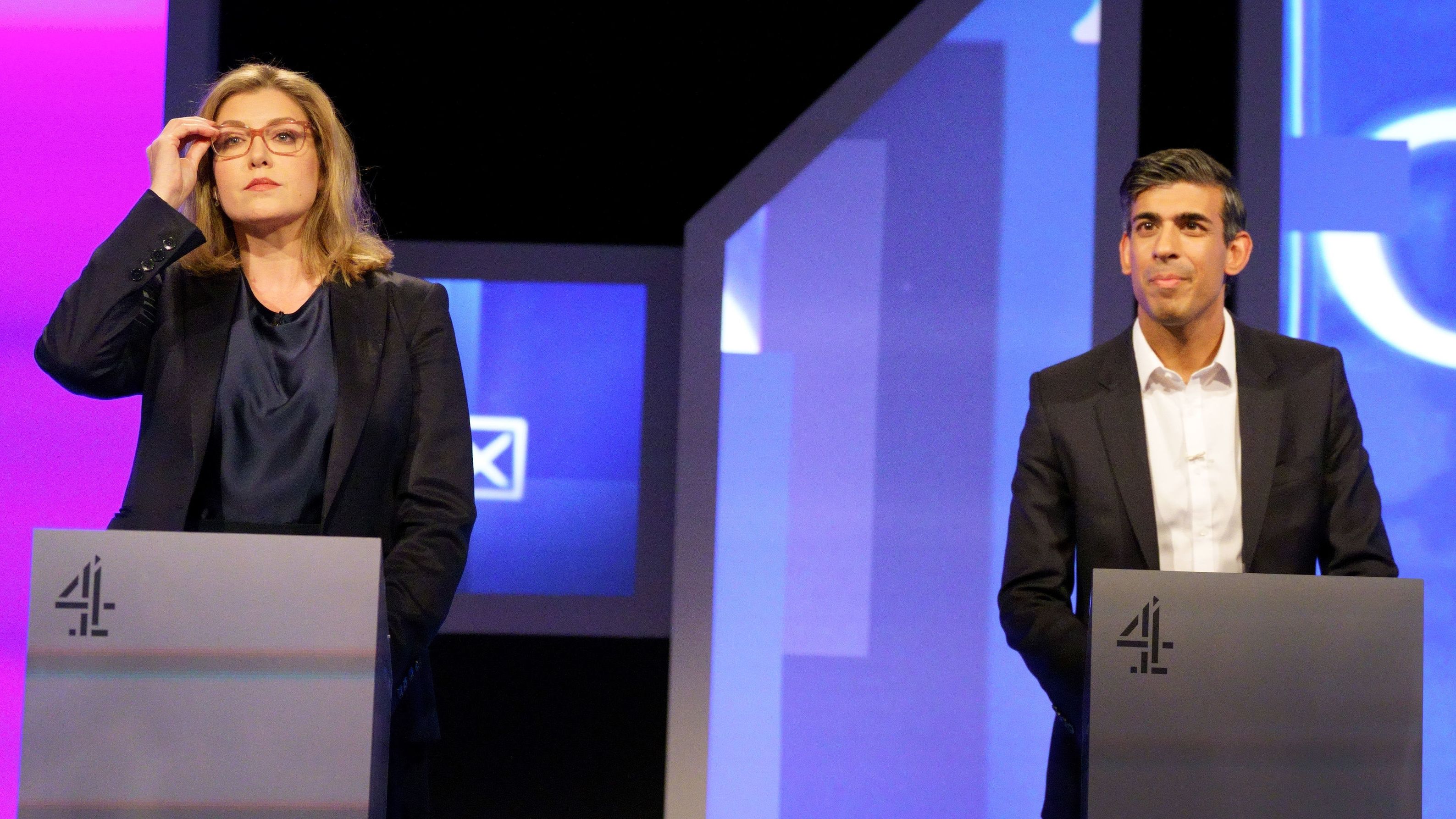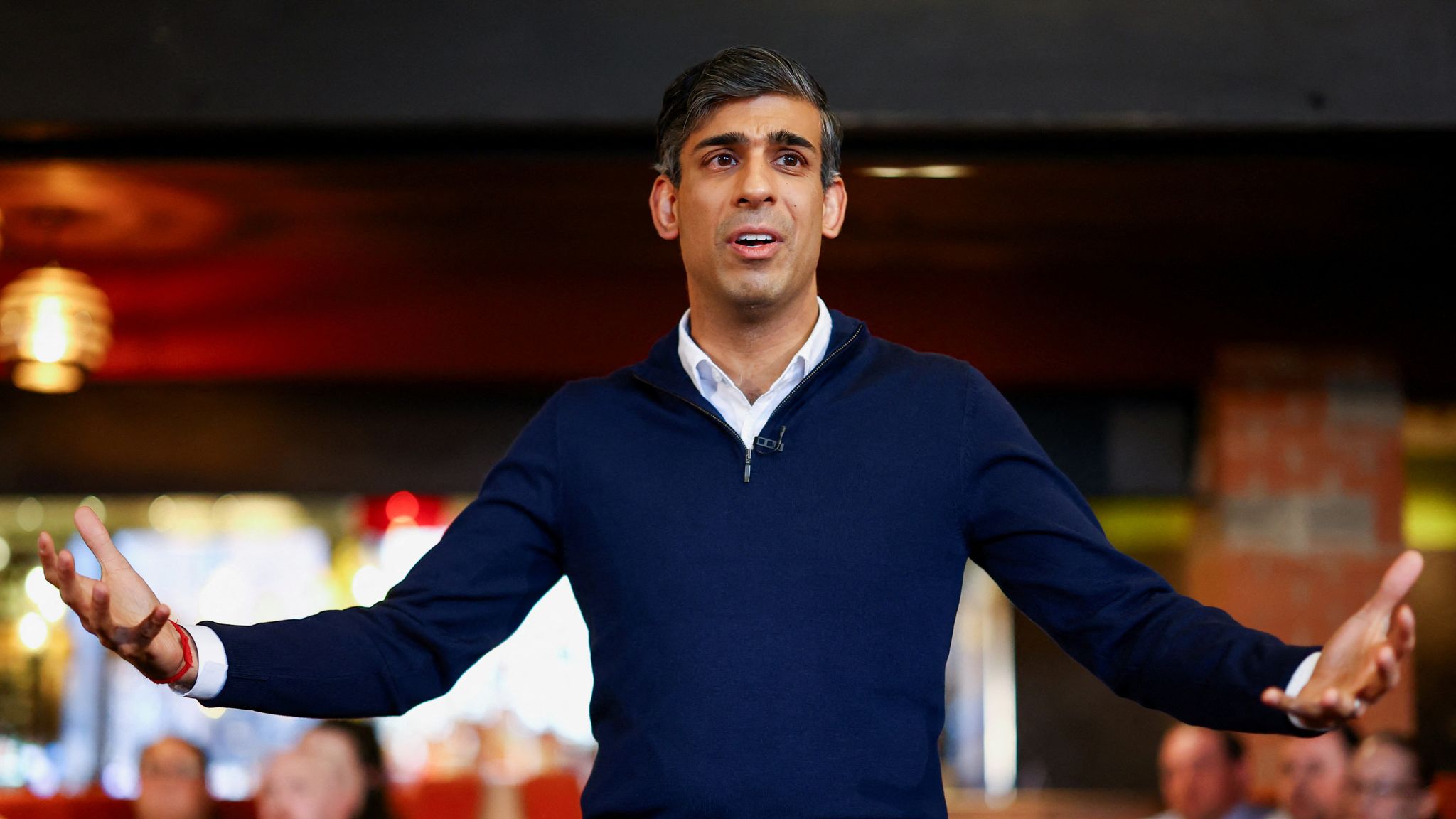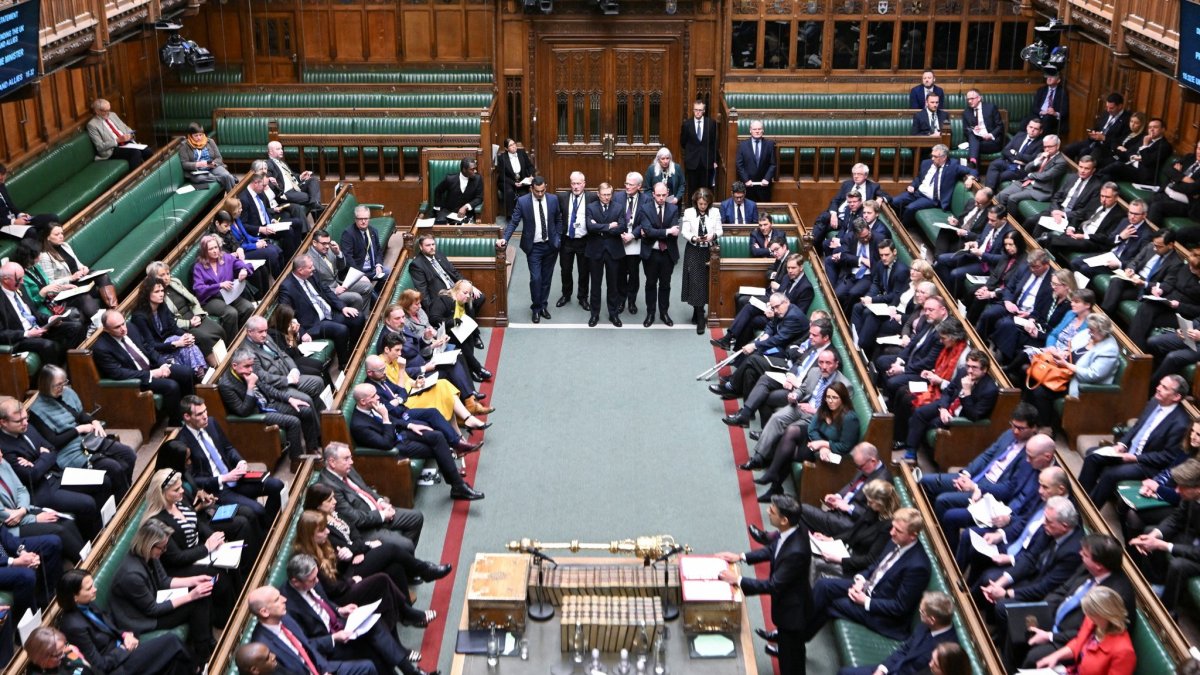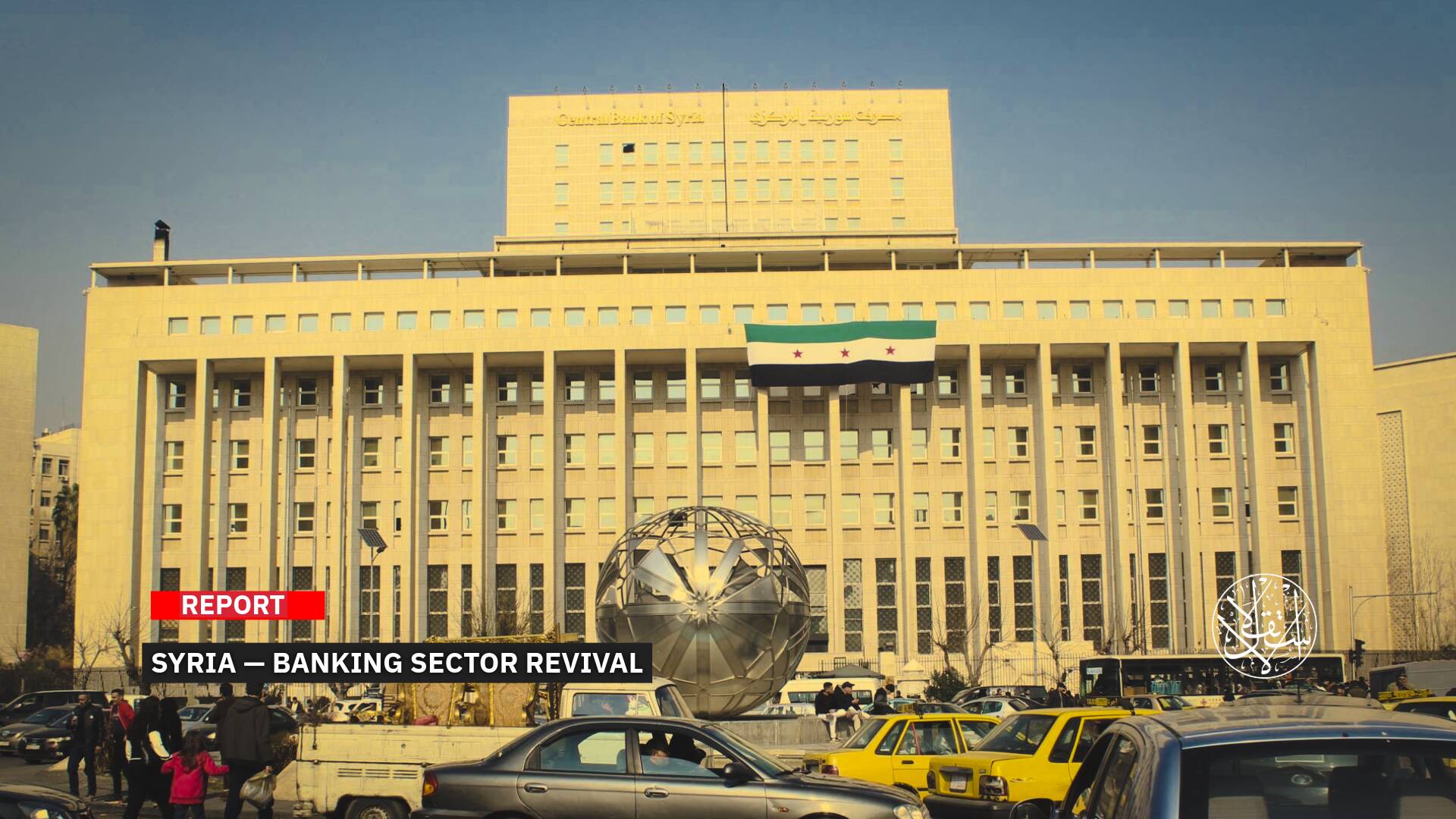Amid Internal Attempts to Oust Rishi Sunak: How the Competition for the Prime Minister’s Office Is Intensifying

“Sunak is facing the biggest challenge to his authority since he took the job in late 2022.”
British Prime Minister Rishi Sunak's control over the political situation in the country is diminishing, especially with the failure to stop the opposition Labour Party's superiority in polls threatening the ruling Conservative Party with a crushing defeat in the next general elections.
According to Bloomberg, Sunak invited businessmen and reporters to attend a speech that the Prime Minister's Office described as an important announcement about the economy, after reports spread last week that the Conservative Party was conspiring against him.
It stated that Sunak's speech, which lasted 7 minutes, did not provide many details and was an attempt to make headlines again.
However, senior ministers acknowledged that Sunak faces difficult days in light of the dispute between Tory donors and the failure of his budget to move the needle in polls.
Sunak's staff, under pressure, were trying to calm a new row with Conservative Party members of Parliament over whether he would call an election next summer.
A senior ally of the Prime Minister warned, in a statement to The Times, that Sunak would call for early elections in Britain instead of allowing Conservative Party members in Parliament to attempt to oust him.
It is noteworthy that many in Westminster do not expect elections to be held before October or November.
Political Conspiracy
The Conservative Party is preparing to get rid of Rishi Sunak and replace him with the leader of the House of Commons, Penny Mordaunt, as a last resort to pull together their dilapidated party ahead of the upcoming general elections.
Armed Forces Minister James Heappey has become the 62nd Conservative MP to announce he will not stand in the next general election.
Sajid Javid, the former health secretary, Dominic Raab, the ex-justice secretary and Ben Wallace, the former defense secretary — all of whom were at one time touted as potential future Tory leaders — are among the other big-name Conservatives who have called it is a day as their party struggles in the polls.
The Independent newspaper recently raised questions about whether Conservative MPs will actually appoint another PM before Britain's general election, as speculation continues to grow about a conspiracy to replace Sunak with Mordaunt.
The report said that Prime Minister Sunak began to lose control of the troubled Conservative Party due to the party's decline in popularity among voters, which led to him lagging behind the Labour Party by about 20 points in recent polls.
Despite promoting the Conservative Party through the launch of pioneering new projects and key speeches, in addition to announcing two budgets to cut taxes, the PM was unable to reduce Labour's lead in polls.
The report indicated that Sunak's handling of the racial dispute involving the largest donors to the Conservative Party, and Lee Anderson's defection from the Reform Party in the UK, also led to increased questions about his political control.
The report pointed out that some Conservative MPs, such as former ministers Andrea Jenkyns and Simon Clarke, publicly called for Sunak's dismissal.
However, former Conservative government ministers, including Jacob Rees-Mogg and David Davis, have condemned the idea of ousting Sunak as crazy.
Mark Harper, Secretary of State for Transport, urged concerned MPs to have some confidence in the party's leadership and to stay the course, noting that Sunak would lead the Conservative Party to the elections at the end of the year.
The report pointed out that some conservative circles are pushing for the appointment of Penny Mordaunt as party leader without holding internal elections, taking advantage of the state of acceptance she enjoys from the moderate wing of the party and from the hard right-wing of the conservatives.
If efforts to replace Sunak with Mordaunt are successful, whether unanimously or through electoral competition, the pressure to call early general elections will be intense.

Reports suggest that Sunak will not be ousted at the present time, while MPs may be pushed to act after the local elections scheduled for next May 2, as there will be 2,636 seats available for elections in 107 local councils, in addition to 11 municipal elections.
According to reports, if the Conservatives' results are poor, it will spark a widespread rebellion against PM Rishi Sunak.
To trigger a no-confidence vote, 53 Tory MPs need to submit a letter to the 1922 Committee, which amounts to 15% of all Tory MPs.
Sunak met members of the 1922 Committee's executive committee last week, sparking speculation they were concerned about his leadership.
In the same context, MPs from the right-wing movement in the Conservative Party made it clear that they would not allow Mordaunt to be crowned as the new leader of the party without competition.
Other names raised to succeed Sunak include: Kemi Badenoch, Grant Shapps, Tom Tugendhat, Suella Braverman, and Robert Jenrick.
One senior MP said: "If there is one chance to improve the party's fortunes, it is to choose a candidate from the rightwing."
He added, "All polls show that in these elections, the party needs to improve its position on the right through a radically different approach to immigration."
Bloomberg explained that one of the main reasons why Sunak is considered invincible is the severe division in the Conservative Party and his inability to agree on a successor to him.
Many members of Parliament believe that changing the party leader again before the elections would upset voters, it added.
It is noteworthy that the trend toward addressing the decline in the popularity of the ruling Conservative Party by replacing its leader had escalated after a series of political, economic, and legislative defeats suffered by the Conservatives since 2023.
Here the question arises about the reality of what the Tories are experiencing after 14 years in power. Is it truly a leadership crisis, or failed policies and electoral promises that have not yet been fulfilled?

Historical Decline
Support for the Conservative Party has plunged to the lowest level since 1978, with just a fifth of British voters now backing Rishi Sunak's party, according to a new poll.
The bombshell survey, showing the Conservatives as 27 points behind Sir Keir Starmer's Labour Party, would spell electoral oblivion for Sunak's party if replicated at a general election.
The Ipsos poll, published on March 4, shows Sunak could hold on to as few as 25 seats — 351 fewer than Boris Johnson won in 2019 — in what would be a historic defeat.
It also predicts Keir could secure as many as 537 seats — 340 more than Jeremy Corbyn managed at the last election and equating to a landslide which would eclipse Tony Blair's 1997 win.
The survey showed support for the Tories at just 20%, the lowest since 1978 when Ipsos started tracking the poll.
The shock poll comes just weeks after the Tories fell out over a series of secret opinion polls that attempted to discredit Sunak, including one that warned of Tory defeat unless he is removed from office.

In turn, lawyer Bassam Tablieh explained in a statement to Al-Estiklal that "the popularity of the ruling party declined clearly following the spread of party scandals during the quarantine period at the end of the reign of former PM Boris Johnson."
He pointed out that "the Conservatives' crisis worsened with the arrival of Liz Truss and the mistakes she committed, in addition to Rishi Sunak's failure to implement his five promises related to the issues that concern the British today. All of this has come against a backdrop of public frustration at near-record NHS waiting lists and record high net migration."
Mr. Tablieh also pointed out "that the Conservatives' popularity has declined following a series of political crises that Sunak has been exposed to since the beginning of 2024, including two large by-election defeats in Wellingborough and Kingswood, an Islamophobia row over comments by now-suspended Tory MP Lee Anderson and pro-Palestine demonstrations."
Sources
- Rishi Sunak’s leadership on the brink following dismal polls and ministerial resignations
- Right-wing Tory MPs want Mordaunt to oust Sunak
- Rishi Sunak struggles to maintain grip on power as 65th Tory MP calls it quits
- Sunak Struggles for Control in Face of Dire Polls and Tory Anger
- All the MPs standing down at the next election
- Tory support hits lowest level for more than 40 years, damning poll shows












